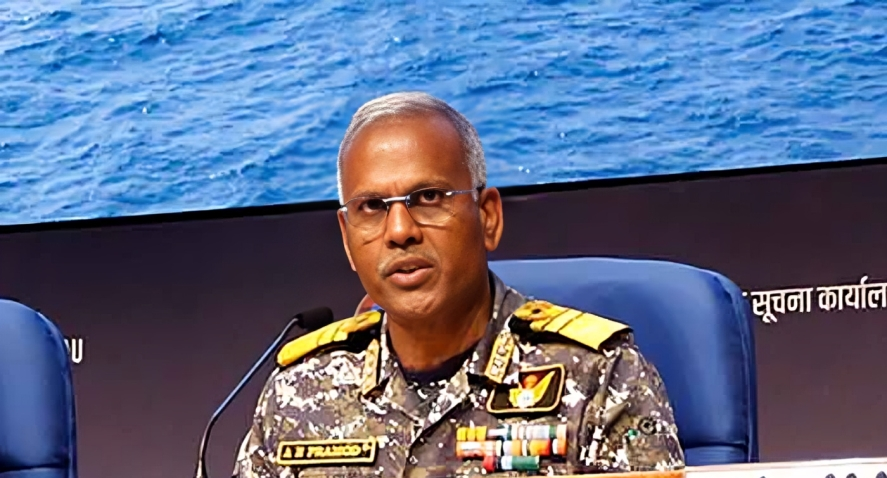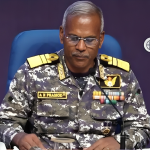In a stern and unequivocal message, the Indian Armed Forces have warned Pakistan against any further misadventures, affirming their readiness to deliver a swift and decisive response to provocations. This declaration comes as Operation Sindoor—a precision military campaign targeting terrorist camps in Pakistan and Pakistan-occupied Jammu and Kashmir (PoJK)—enters a critical phase.
Vice Admiral A.N. Pramod, Director General of Naval Operations, addressed a high-level press briefing in the national capital, stating, “If Pakistan dares take action, they know what we are going to do.” He emphasized India’s superior maritime capabilities, asserting that the Navy holds both quantitative and qualitative dominance, capable of delivering a “massive blow to the adversary” and maintaining complete control over the seas.
Operation Sindoor was launched in retaliation to the heinous April 22 terror attack in Pahalgam, Jammu and Kashmir, where Pakistani-sponsored terrorists brutally killed 26 civilians, including a Nepalese national, and Indian Navy officer Lt. Vinay Narwal. In response, the Indian military struck nine terror facilities, including the notorious Lashkar-e-Taiba’s Markaz Taiba in Muridke, believed to have links to the 2008 Mumbai attacks.
Vice Admiral Pramod elaborated on the Navy’s rapid mobilization following the Pahalgam massacre. Within 96 hours, India’s carrier battle group, submarines, surface ships, and aviation units were forward-deployed to the northern Arabian Sea in full combat readiness. Live-fire drills were conducted to demonstrate operational preparedness, with targets including Karachi under close observation and well within striking range.
“The Navy’s posture at sea forced Pakistan into a hasty appeal for ceasefire,” the Vice Admiral noted. “Most of their naval and air assets remained docked in harbors or close to the coast, where we maintained continuous surveillance.” Despite this strategic advantage, India’s approach has remained “measured, proportionate, and non-escalatory.”
Also present at the briefing were the Director Generals of Military and Air Operations, who confirmed that Operation Sindoor had successfully neutralized key terror infrastructure deep within Pakistan. The operation, while military in nature, has stirred regional tensions, with countries such as Qatar, Iran, Japan, Germany, Israel, France, and Bangladesh calling for de-escalation.
Pakistan’s reaction has included intensified shelling along the Line of Control (LoC), particularly in the Poonch sector, resulting in the deaths of 12 civilians and one Indian soldier. India responded firmly while maintaining escalation within manageable thresholds. Border states like Rajasthan have since heightened security protocols.
In light of the evolving situation, the Indian government has convened an all-party meeting to ensure national unity. Political leaders from across party lines have expressed support for the armed forces. West Bengal Chief Minister Mamata Banerjee stated her full solidarity with the central government, while Delhi Chief Minister Rekha Gupta issued a stern warning that “bigger steps” would be taken if Pakistan continued its provocations.
As Operation Sindoor continues to unfold, India’s Armed Forces remain on high alert, with the Navy sustaining its deterrent presence at sea. The message is clear: India seeks peace, but is prepared for all contingencies to safeguard its sovereignty and citizens.













